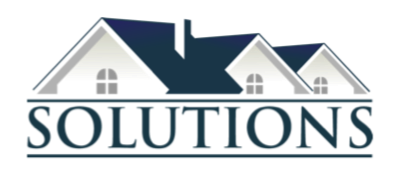Many first time homebuyers have in mind that they need at least a 20% down payment and a monthly check for the mortgage. But that’s not the entire story when it comes to buying a home.
There are a mountain of “hidden” costs — from closing fees to taxes — that can add up to more than $9,000 each year — and that number will only jump if you live in a major U.S. city.
Three unavoidable costs — homeowners’ insurance, property taxes and utilities — and other common costs are often overlooked.
If you’re considering buying a home, be mindful of these expenses when establishing your budget:
Homeowner’s Association Fee – HOA fee – If you’re planning on living in a condo or planned development, HOA fees are almost always required to cover the costs of, for example, maintaining the building’s lobbies, patios, landscaping, pools (if applicable) and elevators. These can range from $45 to $400 a month.
Mortgage Interest – This cost is highly variable depending on income, debt, credit score, down payment and length of mortgage, but expect to pay an annual interest rate between 3-5%.
Private Mortgage Insurance – PMI – This cost only applies if you don’t have a 20% down payment. PMI can cost between .3% and 1.5% of mortgage, depending on the size of the downpayment and credit score.
Home Insurance – The cost varies depending on where you live – areas prone to natural disasters or high crime can expect to pay more – and what you add-on. The national average is around $1,000 a year.
Utilities – Factor in an extra $3,000 annually to cover utility costs like electricity, water and gas.
Maintenance – U.S. households can pay up to $3,500 per year to outsource maintenance costs like house cleaning, yard care, gutter cleaning, carpet cleaning and pressure washing. Although these tasks can be done by the owner it’s far from free as you still need the proper equipment.
Property tax – This is typically assessed annually, although some areas go longer between assessments, but the national average is about $2,200 a year.
Renovations – The need to renovate or update will arise so it’s wise to set aside some extra cash for those moments.
Moving costs. Will you be gathering friends to help you move into your home, or do you need a moving truck? Don’t forget about those costs.
Propane or oil tanks. At the closing, some buyers have been asked to reimburse the sellers for the fuel remaining in the tank.
Closing costs – These include appraisal, survey (if required by the lender), attorney, title insurance, property transfer taxes and inspection fees. Closings will vary by state but they usually equal to about 2.5% of the home cost.
Before you close on a house, your mortgage insurer may require a home inspection, which can run several hundred dollars. Even if an inspection isn’t required, it’s worth paying a professional to evaluate the house so you can avoid spending hundreds of thousands on any hidden issues that can pop up only after you close on the house.
Survey costs. Your lender may want you to have a professional survey of the property, so everyone knows exactly where your land’s boundaries are. These can run around $500-$600.
Taxes. You probably know you’re going to be paying taxes, but it can be easy to forget that you’ll likely need to prepay those taxes at closing.
An escrow account is used by the lender to pay the homeowner’s nonmortgage-related property ownership expenses. If your down payment is less than 20 percent, you’ll be required to use one. An escrow account allows your mortgage company to pay the taxes for you – without it, you’ll be hit with property tax bills twice a year.
At the beginning of your mortgage, it can be a shock when you have to pay a couple months’ worth of property taxes, a year’s worth of homeowner’s insurance and possibly HOA dues as well.
Fees at closing:
Government recording charges: The cost for state and local governments to record your deed, mortgage and loan documents.
Appraisal fee: The cost for an appraiser to decide how much your house is worth.
Credit report fee: Your lender had to pay to get your credit report; you cover the cost.
Title services and lender’s title insurance: Fees related to your home’s title.
Flood life of the loan fee: The government tracks changes in your property’s flood zone status; you’ll pay a small fee.
Tax service fee: This service ensures the taxes previously paid on the house are up to date.
Lender’s origination fee: The charge for processing your loan application.
Reforms passed in 2010 by the Department of Housing and Urban Development, state that lenders aren’t allowed to impose hidden costs. When they give a buyer a Good Faith Estimate, a form that spells out the expected costs associated with your home loan, the final tally can’t exceed 10 percent of the GFE. This form has now been changed recently to a TRID.
But 10 percent of closing costs isn’t insignificant. Consider that closing costs are generally between 2 to 5 percent of the home’s purchase price. So if a $200,000 house has $8,000 in closing costs, an extra 10 percent would be another $800.

